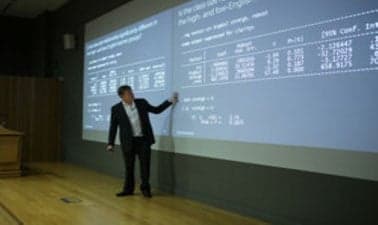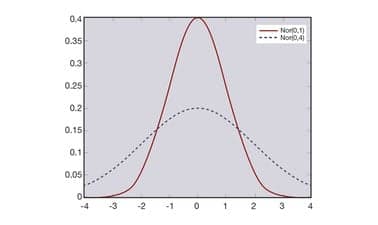Course Description
The LSE MicroBachelors Program in Statistics Fundamentals Assessment is the culminating examination for students who have completed the four-course series in statistics offered by the London School of Economics and Political Science. This comprehensive, two-hour online proctored exam evaluates students' mastery of essential statistical concepts, methods, and techniques covered throughout the program. By successfully passing this assessment with a score of 60% or higher, learners will earn their certificate in Statistics Fundamentals, demonstrating their proficiency in this critical field.
What students will learn from the course
Through this rigorous assessment, students will showcase their understanding of a wide range of statistical topics, including:
- Probability theory and distribution
- Data visualization and descriptive statistics
- Hypothesis testing and statistical inference
- Sampling design and causation
- Correlation and linear regression
- Random variables and their distributions
- Point and interval estimation
- Analysis of variance (ANOVA)
Pre-requisite or skills necessary to complete the course
Before attempting this assessment, students must have successfully completed and passed the following four courses within the LSE MicroBachelors program in Statistics Fundamentals:
- Statistics 1: Introductory statistics, probability and estimation
- Statistics 1: Statistical methods
- Statistics 2: Probability and distribution theory
- Statistics 2: Statistical inference
Students should have engaged with all learning materials and fully understood the concepts, methods, and techniques introduced in these courses.
What the course will cover
The assessment covers a comprehensive range of topics, including:
- Mathematical revision and the nature of statistics
- Data visualization and descriptive statistics
- Probability theory
- Normal distribution and sampling concepts
- Point and interval estimation
- Hypothesis testing (I and II)
- Contingency tables and chi-squared test
- Sampling design and causation
- Correlation and linear regression
- Random variables and their distributions
- Multivariate random variables
- Sampling distributions of statistics
- Analysis of variance (ANOVA)
Who this course is for
This assessment is designed for intermediate-level learners who have completed the LSE MicroBachelors program in Statistics Fundamentals. It is ideal for students, professionals, and anyone seeking to validate their statistical knowledge and skills through a prestigious institution like the London School of Economics and Political Science.
How learners can use these skills in the real world
The statistical concepts and methods covered in this program and assessed in this examination have wide-ranging applications across various fields. Graduates can apply these skills in:
- Data analysis and interpretation in business, finance, and economics
- Market research and consumer behavior analysis
- Scientific research and experimentation
- Public policy analysis and decision-making
- Quality control and process improvement in manufacturing
- Healthcare and epidemiological studies
- Social sciences research and demographic analysis
- Environmental studies and climate change research
By mastering these statistical concepts and earning the LSE MicroBachelors certificate, learners will be well-equipped to tackle complex data-driven challenges in their chosen career paths.
Syllabus
The assessment covers the following topics:
- Mathematical revision and the nature of statistics
- Data visualization and descriptive statistics
- Probability theory
- The normal distribution and ideas of sampling
- Point and interval estimation
- Hypothesis testing I
- Hypothesis testing II
- Contingency tables and the chi-squared test
- Sampling design and some ideas underlying causation
- Correlation and linear regression
- Probability theory I
- Probability theory II
- Random variables
- Common distributions of random variables
- Multivariate random variables
- Sampling distributions of statistics
- Point estimation I
- Point estimation II and interval estimation
- Hypothesis testing
- Analysis of variance (ANOVA)
By successfully completing this assessment, students will demonstrate their comprehensive understanding of statistics fundamentals and their readiness to apply these skills in real-world scenarios.










